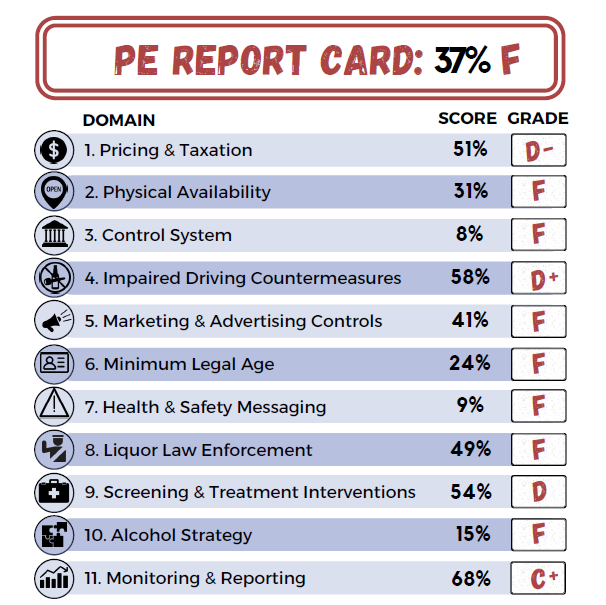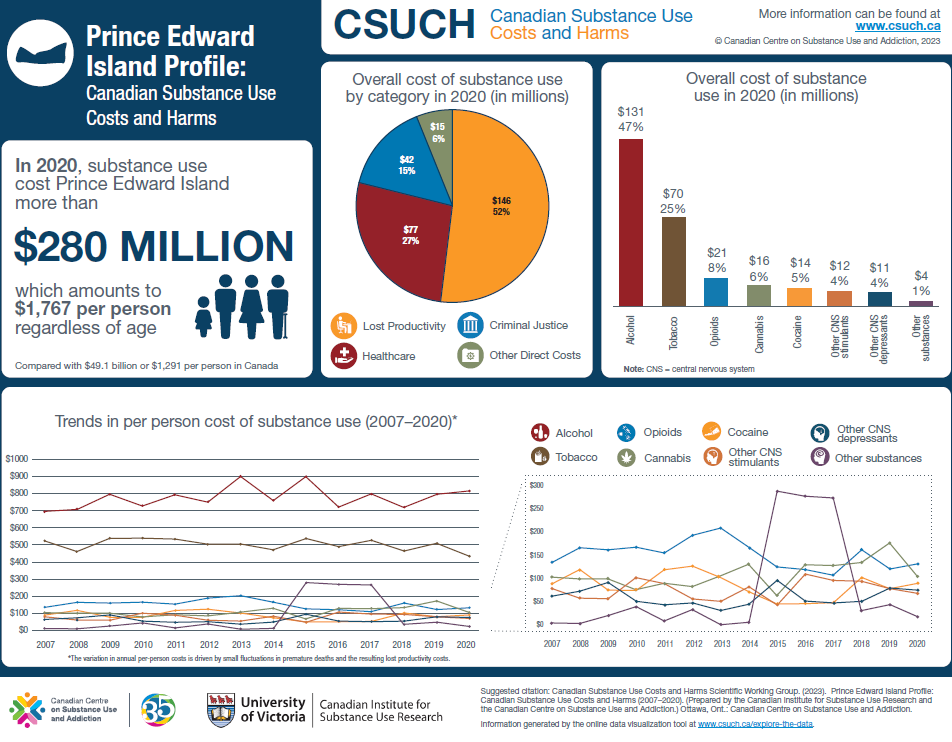Healthy Society
One of the most effective ways to lower alcohol consumption and alcohol-related harms in our communities is through healthy public policies.
These best practice policies are important to reduce alcohol-related harms and to change cultural norms.
- What "Grade" Does PEI's Alcohol Report Card Have?
-
The Canadian Alcohol Policy Evaluation (CAPE) gives an annual report of each province and territory on how strong their alcohol policy is. These policies are the most important things to lower alcohol related harms.
PEI has received three failing CAPE Report scores, including the most recent CAPE 3.0 Report for PEI.
- How Much Money Does PEI Spend on the Harms of Alcohol?
-
The Canadian Substance Use Costs and Harms (CSUCH) Report summarizes the costs of various substances, such as alcohol, tobacco, opioids and cannabis.
Alcohol is the leading cost of harms in Canada and PEI, compared to all other substances (including tobacco, cannabis and opioids). In 2020, substance use cost PEI more than $280 million, with $131 million of this (47%) being attributed to alcohol-related costs and harms.
Explore the data on the CSUCH visualization tool.
- PEI Alcohol Forum
-
The Health Promotion Unit has hosted three Provincial Alcohol Policy Forums, since 2023. The goal of the forums has been to offer an opportunity to learn, network, and share information about alcohol policy best practices and alcohol-related harms in PEI. To learn more about the alcohol forums (including summary reports and presentation slides), checkout our Learning Opportunities page.
- Campus Alcohol Policy Project
-
In October 2023, SHEA Lab released a report on "Strengthening Alcohol Policies on Atlantic Canadian Post-Secondary Campuses". This report provides a comparison of the current state of alcohol policies from 12 Atlantic Canadian Universities including UPEI.





